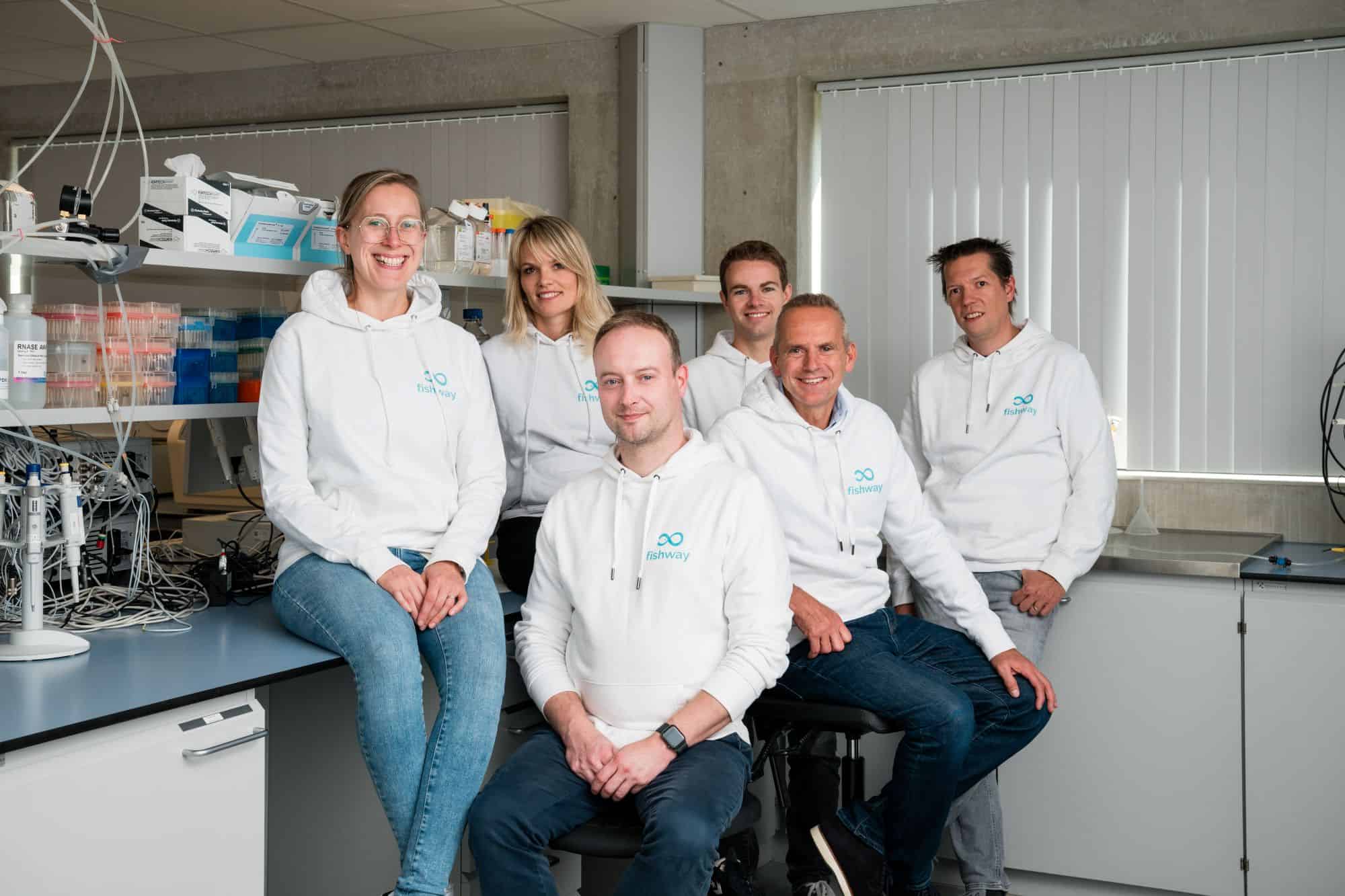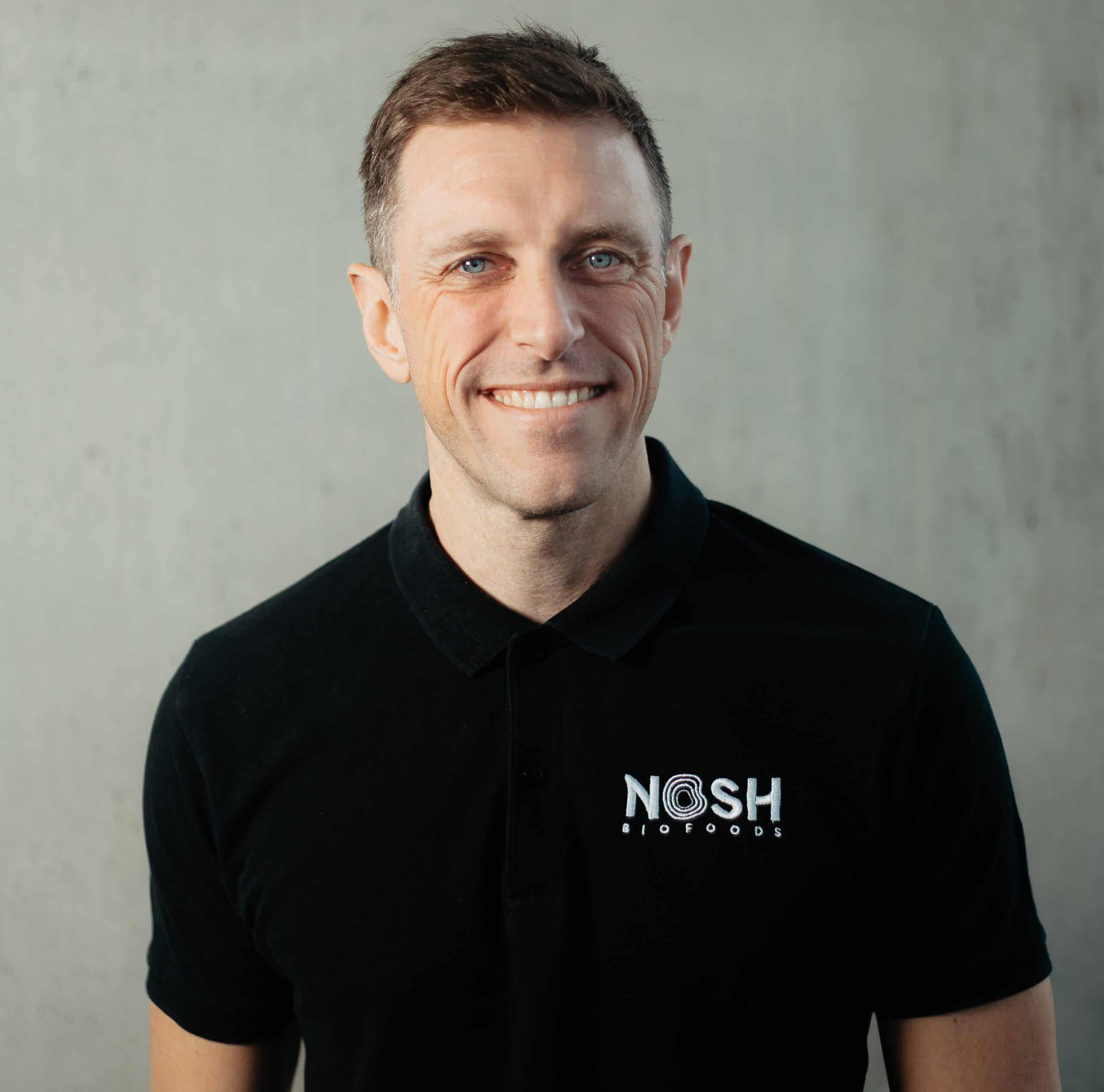Two alternative protein startups, Austria’s Revo Foods, a manufacturer of 3D-printed vegan seafood, and Belgium’s Paleo, a precision fermentation startup developing animal-free heme, have joined forces to advance sustainable and realistic seafood alternatives.
In a project initiated earlier this year and funded by the European Union’s Eurostars program with €2.2 million, the companies are working to develop a “unique” animal-free salmon heme for Revo Foods’ 3D salmon fillet.
Speaking to Cultivated X, Hermes Sanctorum, CEO of Paleo, explained that the project is specifically focused on tailoring the company’s heme technology to enhance Revo’s plant-based seafood. “We’re currently in the testing phase, refining our approach to meet quality and sensory expectations,” he said.

Alternatives that deliver “real” taste
Paleo’s heme lineup for the plant-based sector includes beef, chicken, tuna, and even mammoth. Myoglobin, better known as heme, is a protein found in mammals’ muscles. It is said to mimic the taste, color, and aroma of fish (or meat). “These proteins cater to versatile tastes and regional preferences, enhancing plant-based products such as burgers, sausages, gyros, and dumplings. We are also exploring applications in pet food,” Sanctorum said.
However, animal-free proteins, considered novel foods, need regulatory approval for their commercialization in Europe and other countries and GRAS status in the USA. “We’re working diligently to meet requirements and bring our products to European market as quickly as possible. However, our first market entry will be in the markets where the regulatory processes are most swift,” added Sanctorum.
“We’re excited to bring science and innovation together to create plant-based products that deliver real taste and nutritional value”
Following a €12 million funding round, Paleo opened a new pilot-scale facility in Leuven, Belgium, at the Bio-Incubator Leuven this year and an office in Singapore, where market approval for novel foods takes less time than in Europe.
“This partnership with Revo Foods serves as an example of how different innovative technologies can be complementary. We’re excited to bring science and innovation together to create plant-based products that deliver real taste and nutritional value, supporting a more sustainable food future.”

Innovation for success
Austria’s Revo Foods, a leader in 3D food printing, recently launched the “TASTE FACTORY” in Vienna, claimed as the world’s largest 3D food printing plant. Its flagship product, a mycoprotein-based salmon fillet, became available in over 1,200 supermarkets in the DACH region in August and online across Europe in October 2024.
When asked if a prototype could be tasted when the project finishes in two years, Robin Simsa, Revo Food’s CEO, said, “If the project is successful, then we will have a prototype at the end, but regarding tasting, we need to check with the specific regulations once we are at this point.” The launch of a vegan salmon fillet with heme proteins is a long-term approach, said Simsa, adding, “hopefully within 5 years, given successful project development.”
“I hope projects like this can help to bring the field forward and inspire others to also keep innovating in this important area,” Simsa added.




